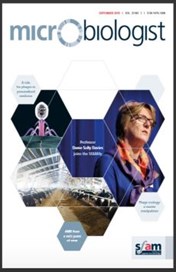The importance of immortalising the bacteriophage

Phage therapy is not a new phenomenon; it was first described over 100 years ago, when its applications were used widely, particularly in Eastern Europe. The rise of antimicrobial resistance combined with several high-profile cases of successful phage therapy, when all other treatment options had been exhausted, has once again re-engaged interest in this approach.
As the application of phages for potential solutions to bacterial problems grows, having a repository from which scientists can both source and deposit bacteriophages is essential. The National Collection of Type Cultures (NCTC) is the world’s oldest bacterial strain collection and has recently established a bacteriophage repository, which aims to provide a trustworthy source of authenticated phages. The NCTC bacteriophage collection will be dynamic, representing a repository into which microbiologists can deposit phages, which in turn will support accessibility and reproducibility in science.

